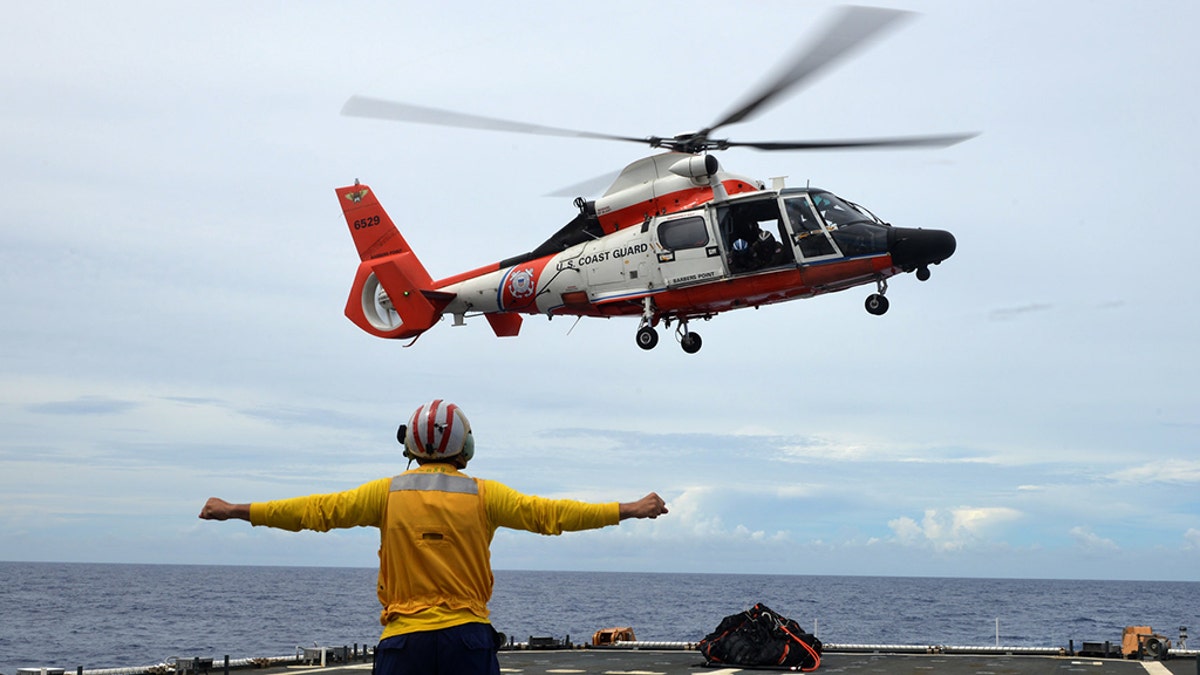Fox News Flash top headlines for Oct. 4
Fox News Flash top headlines for Oct. 4 are here. Check out what's clicking on Foxnews.com
The Coast Guard has become the latest branch of the U.S. armed forces to ease its tattoo policies in a bid to attract new recruits.
New guidelines unveiled by the Coast Guard this week say chest tattoos are now allowed up to the collar of a crew neck T-shirt. Recruits also can have ring or hand tattoos but with certain restrictions, such as not being on their palms.
“I am pleased to see the Coast Guard’s new tattoo policy reinforces a professional appearance to the public while adopting some of the very same tattoo standards that are now acceptable among the public," Master Chief Petty Officer of the Coast Guard Jason Vanderhaden told Military.com in a statement.
“The new tattoo policy will expand our recruiting candidate pool and provide those already serving in the Coast Guard with a few new options,” he added.

Coast Guard Cutter Munro crew members conduct flight operations with an Air Station Barbers Point HM-65 Dolphin helicopter aircrew from the flight deck on the Munro in the Central Pacific, in December 2018. (U.S. Coast Guard photo by Petty Officer 3rd Class Matthew West/Released)
THE MARINES EASE TATTOO RULES, THE STRICTEST IN THE MILITARY
The Army, Air Force and Navy in recent years have relaxed their tattoo rules after acknowledging that recruits who were otherwise qualified to serve were being rejected because of disqualifying tattoos. According to a Pew Research Center study, about 38 percent of young people ages 18 to 29 have at least one tattoo.
The Army no longer limits the size or number of tattoos; the Air Force in 2017 dropped its “25 percent rule,” which prohibited tattoos that covered more than a quarter of a visible part of the body; and the Navy in 2016 began allowing sailors to have tattoos on the neck, sleeves and behind their ears.
CLICK HERE FOR THE ALL-NEW FOXBUSINESS.COM
“We just got to the point where we realized we needed to be honest with ourselves and put something in place that was going to reflect the realities of our country and the needs of our Navy," said then-Master Chief Petty Officer of the Navy Mike Stevens in a 2018 interview with NavyTimes.com. “We need to make sure we’re not missing any opportunities to recruit and retain the best and the brightest because of our policies.”
Last year, a Marines recruiter also announced on social media that those with tattoos that would have disqualified them under former regulations now may seek waivers under a less cumbersome system.
Fox News’ Elizabeth Llorente contributed to this report.










































